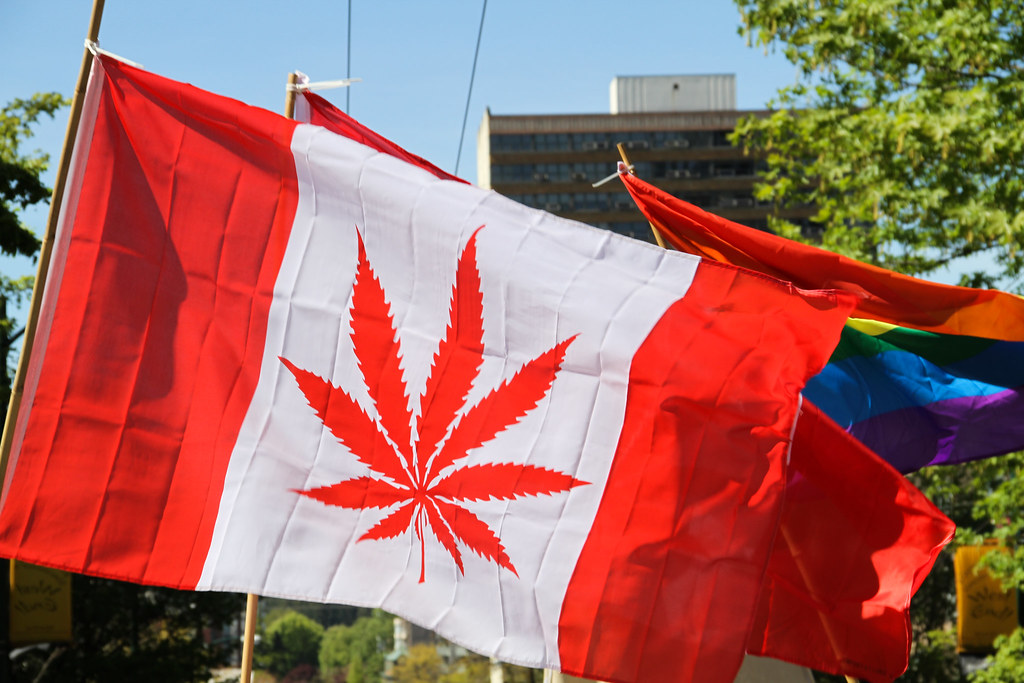
[Picture source: Creative Commons]
By Amber-Dawn Davison
The topic: Newfoundland and Labrador is assembling a list of requests for the federal government in preparation for the legalization of marijuana in 2018.
What’s new: A series of briefing notes from Service NL acquired through a Freedom of Information request lay out several expectations that the province has of the federal government.
In a September 2016 briefing note, the province asked that the federal government develop a roadside testing device that can accurately detect marijuana, and that it incur “costs associated with development, purchase and training of law enforcement officials related to roadside testing devices.”
Service NL said in a second briefing note from October of 2016 that it expects the federal government to establish a national impairment limit on marijuana and amend the Criminal Code of Canada to “support law enforcement.”
Why it’s important: St. John’s has the highest municipal rate of impaired driving offences in the country, at over 400 cases per 100,000 people. Service NL is concerned that the province’s already troublesome impaired driving situation will be made worse when marijuana becomes legal.
Service NL responded by making several amendments to the province’s Highway Traffic Act in early March, ahead of anticipated federal guidelines on the legalization process. The amendments were based on recommendations from MADD, and lay the groundwork for marijuana legalization by banning alcohol and psychoactive drugs for drivers 21 and under, and increasing impaired driving penalties for everyone.
Service NL hopes these amendments will help ease the eventual integration of federal guidelines into provincial legislation.
What the government says: The province is working with MADD to address existing issues with impaired driving, and future problems they foresee with cannabis. Minister Trimper of Service NL says the primary concern is not eradicating cannabis, but rather finding a way to manage it.
“The issue we are dealing with is that across the country, some 40 per cent of young adults are now using this drug. When you look at that type of statistic, it’s better to find a way that [marijuana] can be perhaps safely consumed and our roads can be protected from its use.”
He stated that the recent amendments to provincial road safety legislation have helped the already-attentive law enforcement agencies to curb the problem.
“Because we have become more sensitive to it, police have certainly become more vigilant than they have been,” Trimper says. “In terms of moving forward, we’ll be working closely with the two police forces we have here.”
What others say: Patricia Hynes Coates is the National President of MADD Canada is from Newfoundland, and has been working closely with Service NL. She says that the provincial government’s position reflect what MADD is seeing across the country: determination to deter everyone, especially youth, from impaired driving.
“We know that we’re not going to catch everyone, so our focus is on deterring people,” says Hynes Coates. “I lost my stepson Nicholas Coates several years ago, and nothing I do at this point is going to bring him back. But if we can stop somebody else from driving while impaired and save a life, well that’s what’s important to us.”
Another Newfoundland native, Rick Janes, says that although he is against legalization, he trusts that the provincial government’s policies will be sound. “At the end of the day, I am confident that as Canadians we can implement [adequate policies surrounding road safety and marijuana],” he says. “I just hope we can do it with minimal loss of life.”
What’s next: The federal government’s official announcement regarding the legalization of marijuana is expected on Thursday. Service NL is awaiting federal direction on the process, including anticipated amendments to the Criminal Code of Canada, roadside testing devices, and funding options.
Minister Trimper says that the process will be bumpy, but he expects the federal government’s national strategy will make the transition easier to swallow. “The roll out of [marijuana] will come in one voice, one direction, instead of each of us taking up our own cause and going in different directions,” he says. “I would suspect we’re going to see not only consistency in Newfoundland, but across the entire country as well.”
ATIP documents:




